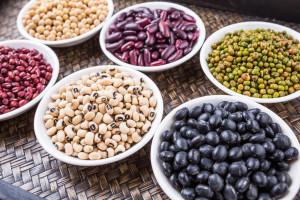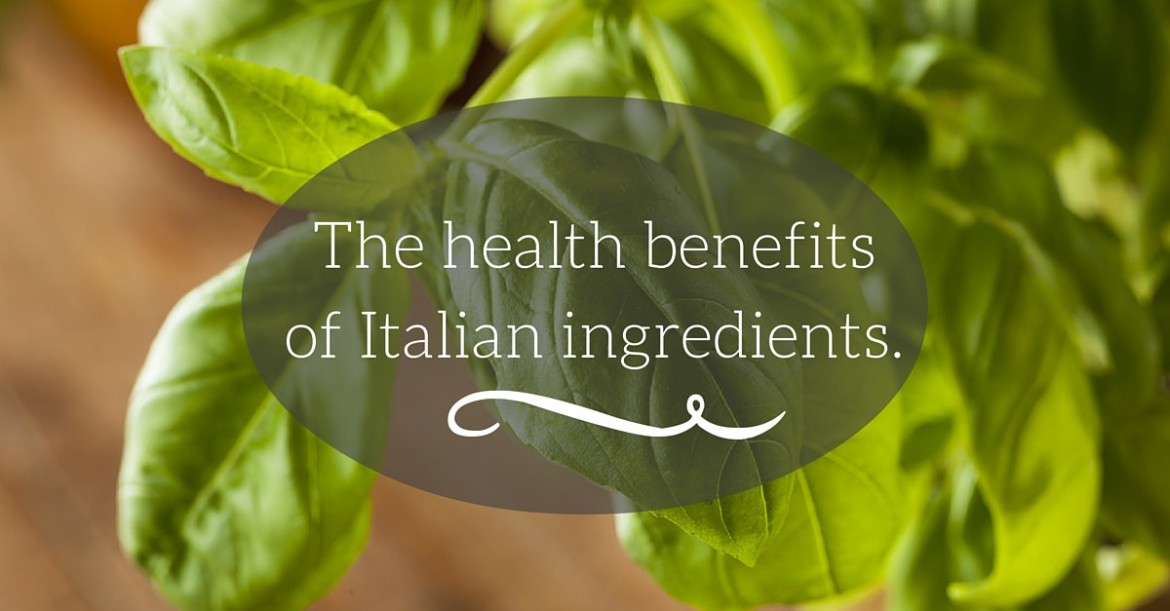- Tomatoes: A Taste of Summer - July 26, 2017
- The International Origins of Pasta - July 12, 2017
- A History of Italian Americans in Salt Lake City - June 29, 2017
Italian cuisine has a rich history, cultivated since the time of the ancient Romans. As one of the oldest and most respected traditions in the culinary world, Italian cuisine encompasses a wide-range of regional flavors and is dedicated to preparations that maintain the integrity of fresh ingredients. With essential ingredients such as olive oil, colorful fruits and vegetables, seafood, and whole grains, Italian cuisine is also considered one of the world’s healthiest. When eaten leisurely, in the company of friends and loved ones, traditional Italian meals provide stress relief and are enjoyed for hours.
At Cucina Toscana, we pride ourselves in the simple and thoughtful presentation of the best ingredients. Here are 10 essential Italian staples that you’ll find on our menu, as well as their health benefits:
1. Olive oil.
 Olive oil, one of the staple fats in Italian cuisine, has been consumed for thousands of years and has a myriad of health benefits. Polyphenols, a kind of antioxidant, found in olive oil has been found to decrease levels of bad cholesterol, and reduces the risk of diabetes, heart disease, and cancer.
Olive oil, one of the staple fats in Italian cuisine, has been consumed for thousands of years and has a myriad of health benefits. Polyphenols, a kind of antioxidant, found in olive oil has been found to decrease levels of bad cholesterol, and reduces the risk of diabetes, heart disease, and cancer.
2. Tomatoes.
 Tomatoes are essential in Italian cuisine, appearing fresh in salads or cooked into savory sauces. High in vitamin A and C, potassium, folate, and lycopene (a heart-healthy antioxidant), tomatoes have been linked to preventing certain cancers. Tomatoes are jam-packed with antioxidants, which protect our bodies from free radicals that cause cell damage.
Tomatoes are essential in Italian cuisine, appearing fresh in salads or cooked into savory sauces. High in vitamin A and C, potassium, folate, and lycopene (a heart-healthy antioxidant), tomatoes have been linked to preventing certain cancers. Tomatoes are jam-packed with antioxidants, which protect our bodies from free radicals that cause cell damage.
3. Garlic.
 Considered by the ancient Romans to be a magical food, garlic has been traced back 5,000 years by anthropologists and is fundamental in Italian cooking. Garlic has antibiotic and antifungal characteristics and benefits hearth health, while also lowering high blood pressure and high cholesterol.
Considered by the ancient Romans to be a magical food, garlic has been traced back 5,000 years by anthropologists and is fundamental in Italian cooking. Garlic has antibiotic and antifungal characteristics and benefits hearth health, while also lowering high blood pressure and high cholesterol.
4. Balsamic vinegar.
 Prepared in wooden barrels much like wine, balsamic vinegar is made from grapes, is low in calories, and provides many health benefits. Balsamic vinegar has been found to lower blood pressure, keep blood sugar levels healthy (which lowers risk of diabetes), and stabilize cholesterol levels. It has also been known to promote digestion and alleviate migraines.
Prepared in wooden barrels much like wine, balsamic vinegar is made from grapes, is low in calories, and provides many health benefits. Balsamic vinegar has been found to lower blood pressure, keep blood sugar levels healthy (which lowers risk of diabetes), and stabilize cholesterol levels. It has also been known to promote digestion and alleviate migraines.
5. Whole grains.
 Whole unrefined grains are abundant in Italian cuisine and offer the benefits of fiber, magnesium, and vitamin E. Whole grains have been known to promote better digestion and heart health, reduce levels of cholesterol, and lower risk of diabetes by stabilizing blood sugar levels.
Whole unrefined grains are abundant in Italian cuisine and offer the benefits of fiber, magnesium, and vitamin E. Whole grains have been known to promote better digestion and heart health, reduce levels of cholesterol, and lower risk of diabetes by stabilizing blood sugar levels.
6. Beans.
 Found in dishes that range from appetizers to soups to entrees, beans are a staple of Italian cuisine. This versatile, low-fat protein is full of folate, calcium, zinc, iron, vitamin B, and antioxidants. Beans have been known to decrease the risk of diabetes, heart disease, and certain cancers.
Found in dishes that range from appetizers to soups to entrees, beans are a staple of Italian cuisine. This versatile, low-fat protein is full of folate, calcium, zinc, iron, vitamin B, and antioxidants. Beans have been known to decrease the risk of diabetes, heart disease, and certain cancers.
7. Dark leafy greens.
 Whether sautéed with garlic, served fresh in a salad, or served in a soup, Italian cuisine includes an array of dark, leafy greens such as kale, escarole, and chard. These vegetables provide vitamin A, vitamin C, and vitamin K, as well as high levels of antioxidants.
Whether sautéed with garlic, served fresh in a salad, or served in a soup, Italian cuisine includes an array of dark, leafy greens such as kale, escarole, and chard. These vegetables provide vitamin A, vitamin C, and vitamin K, as well as high levels of antioxidants.
8. Seafood.
 Along with olive oil, seafood is a healthy fat in Italian cuisine. Fish such as sardine, tuna, and salmon provide omega-3 fatty acids, which promote heart health and reduce high blood pressure. Shellfish, such as shrimp and lobster, contain high levels of vitamin B and selenium, which supports the body’s immune system, while crab and oyster contain the nutrient zinc.
Along with olive oil, seafood is a healthy fat in Italian cuisine. Fish such as sardine, tuna, and salmon provide omega-3 fatty acids, which promote heart health and reduce high blood pressure. Shellfish, such as shrimp and lobster, contain high levels of vitamin B and selenium, which supports the body’s immune system, while crab and oyster contain the nutrient zinc.
9. Red wine.
 A glass of red wine with a traditional Italian meal is a classic pairing. When drunk in moderation, red wine offers many health benefits: it helps the body to absorb nutrients better in digestion and regulates blood sugar, while the high level of antioxidants helps to prevent cancer and heart disease.
A glass of red wine with a traditional Italian meal is a classic pairing. When drunk in moderation, red wine offers many health benefits: it helps the body to absorb nutrients better in digestion and regulates blood sugar, while the high level of antioxidants helps to prevent cancer and heart disease.
10. Coffee.
 Traditionally, coffee is served at the end of an Italian meal. A strong cup of espresso aids with digestion, regulates blood sugar, and benefits liver and heart health. Some studies have shown that coffee lowers the risk of Parkinson’s disease and diabetes.
Traditionally, coffee is served at the end of an Italian meal. A strong cup of espresso aids with digestion, regulates blood sugar, and benefits liver and heart health. Some studies have shown that coffee lowers the risk of Parkinson’s disease and diabetes.

